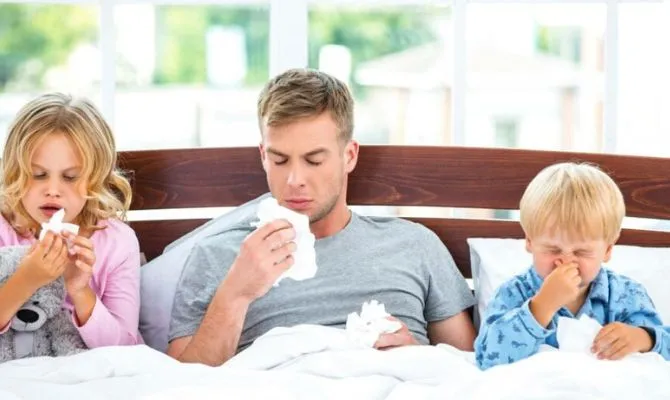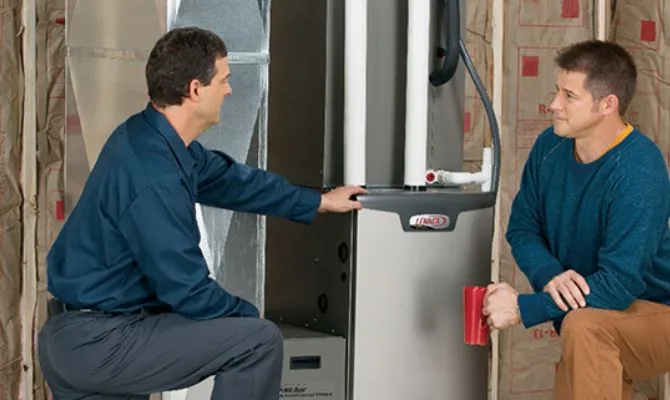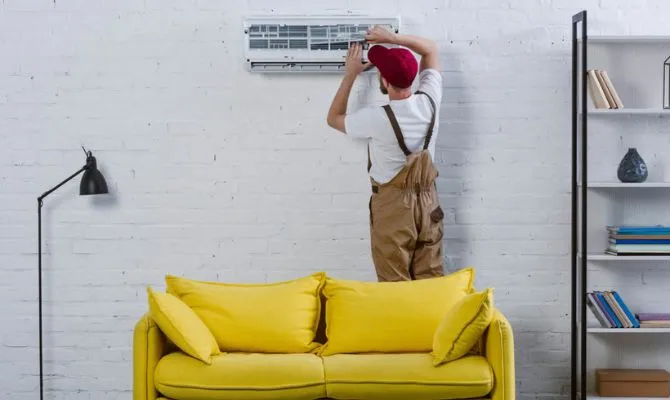During the COVID-19 pandemic, we’ve all been spending more time in our homes than usual, meaning we’re missing out on the opportunity to enjoy fresh air.
“Fresh air?” you might say. “What about smog, pollen, vehicle exhaust and industrial pollution?” Yes, they can be irritating, but according to the United States’ Environment Protection Agency, if we’re inside, “concentrations of some pollutants are often 2 to 5 times higher than typical outdoor concentrations.”
There are all kinds of pollutants that can affect your home’s interior air quality: biological contaminants such as mold, mildew or pet dander; particulate matter from stoves or burning candles; gases emitted by products such as paint, cleaning products, aerosol sprays and flooring; and radon, a naturally occurring gas that is produced from the breakdown of radioactive metals in soil, rocks and groundwater. It’s a bit daunting when you stop to consider it.
If the air inside your home seems stuffy or is causing too much coughing or sneezing, it may be time to clean up that invisible part of your indoor environment.
Pollution Solutions
Here are some useful approaches to improving the air quality in your home:
Instal a Whole Home Air Purifier.
If you are building a new home or doing a complete HVAC renovation, it’s a perfect opportunity to instal a whole home air purifier. The purifier is actually a set of filters built into the ductwork of the home to trap airborne contaminants. They are passive systems; if the fan is running, the filters are working to clean the air. A whole home system must be installed by your HVAC professional. There are two major types: electronic filters, which use a high-voltage charge to attract and trap pollutants; and media filters, which create a physical barrier to trap contaminants.
And, if you don’t want the expense of a house-wide system, consider investing in a portable air purifier – one that is certified so it doesn’t emit ozone; check its decibel rating, too, to ensure quiet.
Keep Those Filters Clean.
If the filters in your HVAC system are clogged, they undoubtedly can’t do their job well. In addition, check the filters in other oft-forgotten places: your vacuum cleaner, your clothes dryer and your kitchen vents. Change them regularly and use only High Efficiency Particulate Air (HEPA) filters. They trap 99.97 per cent of dust particles that are 0.3 microns in diameter, including such microscopic items as mould spores and bacteria.
Clean Your Ducts.
Your ducts can be repositories for a variety of pollutants, including animal dander, dirt, dust, mould and rodent droppings, which they may then distribute around the house. If you live in an older home, contaminants may have been gathering for years. Have your HVAC ducts cleaned professionally and your air will be clearer. In addition, the ducts will work more efficiently, which may lower your utility bill.
When it’s humid outside, the humidity in your home can also rise. Damp air can be a perfect growth medium for mould, which is a major respiratory irritant. Moisture inside your home may also increase due to leakage and seepage, condensation around pipes or inadequate roof or wall insulation. Portable humidifiers can help reduce the humidity, as can better insulation around pipes and on your walls and roof. In addition, weatherstripping may prevent moist air from leaking in around windows and doors. If you find water pooling around the low points of your home, you may need to waterproof various areas. Your HVAC professional can advise you on these issues.
Improve Kitchen Ventilation.
Cooking, believe it or not, can release a lot of pollutants into the air. Even cleaner electric stoves produce smoke and particulate matter when they’re in use. To reduce the pollution produced in this busy room, turn on the range hood when you’re cooking and consider opening a window to provide extra ventilation. A kitchen is also a great location for a portable air purifier.
Clean Your Bathroom Fan.
When it removes moisture, your exhaust fan helps prevent the growth of mould and mildew. If it’s not working efficiently due to accumulated dust and grime, you may find these irritants appearing. Remove the fan’s cover a few times each year and vacuum away the debris and the dust to keep it working well.
Keep Your Home Clean.
You can check off all the tasks on this list and the air quality in your home may still be compromised, if you don’t clean regularly, allowing dust and dirt to accumulate. So, get out the vacuum cleaner and the mop and gentle cleaning solutions and establish a cleaning regimen.



